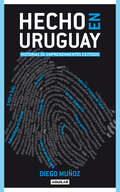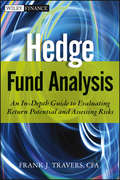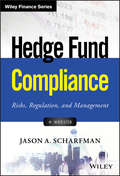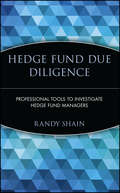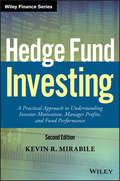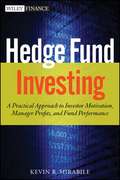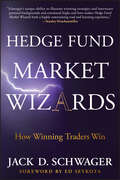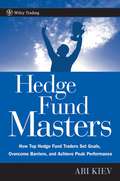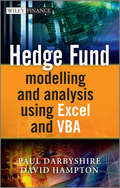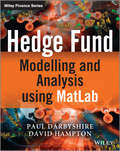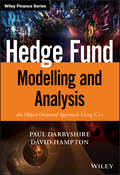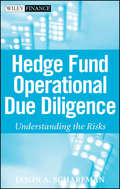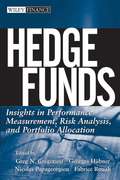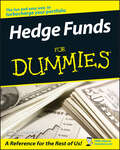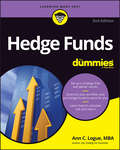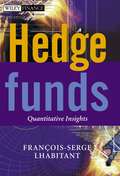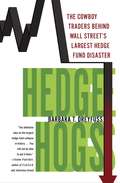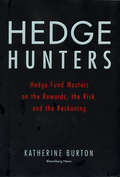- Table View
- List View
Hecho en Uruguay
by Diego MuñozDiego Muñoz, a partir de entrevistas con sus protagonistas, narrahistorias de éxito y nos cuenta cómo lo consiguieron. Cómo se lograsacar adelante un proyecto y volverlo exitoso en este Uruguay del «no sepuede». ¿Por qué el Ballet del Sodre pasó de convocar a unas pocas decenas depersonas a agotar entradas en cada función? ¿Cómo el Teatro Solís pasóde ser un teatro en estado ruinoso a convertirse en un centro deespectáculos de referencia internacional? ¿De qué forma Océano cambiólas reglas de la fm y la transformó por completo, haciendo que laescucharan hasta los que no escuchaban radio? ¿Cómo una paleontólogacasi sin apoyo económico logró liderar una investigación que descubrióel embrión de reptil más antiguo del mundo.- Selección Uruguaya de Fútbol- Tournier Animación- Océano FM- Gene Xus- Ballet Nacional del Sodre- Bodega Bouza- Kizanaro- Teatro Solís- Paleontología en UruguayA veces, estos proyectos nacieron de un fracaso. Otras, de la valentíade dejarse transformar por el azar. Muchas veces lograron el éxito porolfato y otras por pasión. Pero siempre, siempre, hubo determinación yprofesionalismo, optimismo y perseverancia. Diego Muñoz, a partir deentrevistas con sus protagonistas, narra estas historias y nos cuentacómo lo consiguieron. Cómo se logra sacar adelante un proyecto yvolverlo exitoso en este Uruguay del «no se puede». Diego Muñoz, a partir de entrevistas con sus protagonistas, narrahistorias de éxito y nos cuenta cómo lo consiguieron. Cómo se lograsacar adelante un proyecto y volverlo exitoso en este Uruguay del «no sepuede». ¿Por qué el Ballet del Sodre pasó de convocar a unas pocas decenas depersonas a agotar entradas en cada función? ¿Cómo el Teatro Solís pasóde ser un teatro en estado ruinoso a convertirse en un centro deespectáculos de referencia internacional? ¿De qué forma Océano cambiólas reglas de la fm y la transformó por completo, haciendo que laescucharan hasta los que no escuchaban radio? ¿Cómo una paleontólogacasi sin apoyo económico logró liderar una investigación que descubrióel embrión de reptil más antiguo del mundo.- Selección Uruguaya de Fútbol- Tournier Animación- Océano FM- Gene Xus- Ballet Nacional del Sodre- Bodega Bouza- Kizanaro- Teatro Solís- Paleontología en UruguayA veces, estos proyectos nacieron de un fracaso. Otras, de la valentíade dejarse transformar por el azar. Muchas veces lograron el éxito porolfato y otras por pasión. Pero siempre, siempre, hubo determinación yprofesionalismo, optimismo y perseverancia. Diego Muñoz, a partir deentrevistas con sus protagonistas, narra estas historias y nos cuentacómo lo consiguieron. Cómo se logra sacar adelante un proyecto yvolverlo exitoso en este Uruguay del «no se puede».
Hedge Fund Activism in Japan
by John Buchanan Dominic Heesang Chai Simon DeakinHedge fund activism is an expression of shareholder primacy, an idea that has come to dominate discussion of corporate governance theory and practice worldwide over the past two decades. This book provides a thorough examination of public and often confrontational hedge fund activism in Japan in the period between 2001 and the full onset of the global financial crisis in 2008. In Japan this shareholder-centric conception of the company espoused by activist hedge funds clashed with the alternative Japanese conception of the company as an enduring organisation or a 'community'. By analysing this clash, the book derives a fresh view of the practices underpinning corporate governance in Japan and offers suggestions regarding the validity of the shareholder primacy ideas currently at the heart of US and UK beliefs about the purpose of the firm.
Hedge Fund Analysis
by Frank J. TraversA detailed, step-by-step book covering the entire hedge fund evaluation process Investing in hedge funds is different from investing in other asset classes. There is much less publicly available information about hedge funds performance than there is about mutual funds or individual stocks. Consequently, investing in this class requires more sophisticated investment knowledge, greater due diligence, and, in many cases, a better-developed ability to evaluate investment managers. Hedge Fund Analysis provides a broad framework of how to approach this endeavor, from initial screening to analytical techniques, interviewing skills, and legal and contract negotiations. Along the way, it demonstrates a variety of mechanisms for monitoring and tracking hedge funds and the underlying hedge fund portfolios--explaining each stage of the process in minute detail and providing specific examples which fully explain the opportunities and challenges you'll face each step of the way. Provides a detailed look at how to source hedge funds, screen through them, and rank their strengths and weaknesses Lays out a thorough process for evaluating funds, from initial interviews to performance analysis to onsite meetings Reveals what questions to ask by strategy in order to understand the underlying risk factors associated with each Highlights non-investment analysis, including operational due diligence and risk management, as integral elements in the process Written by a financial professional with over twenty years of experience conducting investment manager due diligence, this book will put you in a position to make more informed decisions when investing in hedge funds.
Hedge Fund Compliance: Risks, Regulation, and Management (Wiley Finance)
by Jason A. ScharfmanThe long-awaited guide for modern hedge fund compliance program development Hedge Fund Compliance + Website provides straightforward, practical guidance toward developing a hedge fund compliance program, drawn from the author's experience training financial regulators, consulting with government entities, and analyzing hedge fund compliance structures across the globe. In-depth explanations of compliance principles are backed by illustrative case studies and examples. Highly in-demand templates of popular hedge fund compliance documentation provide actionable illustrations of key compliance policies. Designed to assist investors, fund managers, service providers, and compliance job seekers directly, this book describes the fundamental building blocks of the hedge fund compliance function. Compliance is one of the fastest growing areas in the hedge fund space. This reference book provides an essential foundation in modern hedge fund compliance, reflecting the recent changes of this dynamic field. Design and run a hedge fund compliance program Access templates of core compliance documentation and checklists Discover how investors can evaluate and monitor compliance programs Interviews with hedge fund compliance practitioners A steady stream of regulatory changes, combined with the enhanced enforcement efforts of regulators, ensure that hedge funds' compliance-related expenditures will continue to grow. While hedge fund compliance legislation continues to evolve globally, little practical guidance exists for those tasked with the boots-on-the-ground aspects of developing an actual compliance program to comply with best practices and regulatory guidance from leading hedge fund regulators including the US Securities and Exchange Commission, the National Futures Association, the Commodity Futures Trading Commission and the United Kingdom's Financial Conduct Authority. Hedge fund professionals and investors need a fundamental framework for establishing and evaluating an effective program, and when compliance is the issue, trial and error carries too much risk. Hedge Fund Compliance + Website provides clear guidance and practical tools to meet today's compliance professional needs.
Hedge Fund Due Diligence
by Randy ShainHedge Fund Due Diligence provides a step-by-step methodology that will allow you to recognize and avoid questionable hedge funds before its too late. Based on a framework that hedge fund investigative expert Randy Shain has refined over the course of his successful career, this book offers an overview of due diligence into hedge fund management, how information on managers can be obtained, and why this information is essential to your investment endeavors.
Hedge Fund Investing
by Kevin R. MirabileHedge Fund Investing 2e is an educational tool that both professionals and alternative investment educators can use to build up a deep understanding of hedge funds and alternative investments. They will learn: The Basics of Hedge Fund Investing: Who Invests in Hedge Funds and Why? Industry Trends, Flows, and Characteristics Hedge Mutual Funds and UCITS Secondary Trading of Hedge Fund Investments Strategies: Global Macro Investing, Equity Oriented Strategies, Fixed Income Oriented Strategies, Multi-strategy Funds, Funds of Hedge Funds and Replication Products Hedge Fund Portfolio Financing, Settlement and Clearance Evaluating Individual Fund Investment Opportunities Measuring Performance and Performance Persistence Impact of Fund Characteristics and Terms on Performance Performing Due Diligence on Specific Managers and Funds Evaluating the Roles of Service Providers Outlook for Hedge Fund Investing in the Future Conclusion This book is accompanied by a full suite of educational materials for those making a career in hedge funds and alternative investments.
Hedge Fund Investing: A Practical Approach to Understanding Investor Motivation, Manager Profits, and Fund Performance
by Kevin R. MirabileThe most up-to-date look at how to understand, and invest in, hedge funds Hedge funds are an essential part of the alternative investing arena, and will continue to be so for the foreseeable future. It's important that those investing, or thinking about investing, with hedge funds know exactly what they are about. That's why Kevin Mirabile-a financial professional with over twenty years of business development, regulatory, financing, trading, and sales experience in the hedge fund sector-has created Understanding Hedge Fund Investing. Page-by-page, this reliable resource offers valuable insights into one of the most competitive parts of the investment world. Along the way, you'll become familiar with the evolution of hedge funds and their structure as well as discover what types of individuals and institutions invest using hedge funds. Mirable also takes the time to examine the risks of investing in hedge funds and talks about hedge fund financial statements and taxation. Provides complete coverage of this important investment vehicle, from its different types of investing strategies and styles to what it takes to be a hedge fund manager Multiple-choice questions follow each chapter to assess your comprehension of the topics covered A companion Website contains portfolio models that can be uploaded for use as well as supplementary material that allows you to learn in a hands-on fashion long after closing the book Hedge funds offer investors opportunities that aren't usually found elsewhere. But to benefit from them, you first must understand them. This book has the information you need to succeed at this difficult endeavor.
Hedge Fund Market Wizards: How Winning Traders Win
by Jack D. Schwager Ed Seykota<p>From bestselling author, investment expert, and Wall Street theoretician Jack Schwager comes a behind-the-scenes look at the world of hedge funds, from fifteen traders who've consistently beaten the markets. Exploring what makes a great trader a great trader, <i>Hedge Fund Market Wizards</i> breaks new ground, giving readers rare insight into the trading philosophy and successful methods employed by some of the most profitable individuals in the hedge fund business. <p> <li>Presents exclusive interviews with fifteen of the most successful hedge fund traders and what they've learned over the course of their careers <li>Includes interviews with Jamie Mai, Joel Greenblatt, Michael Platt, Ray Dalio, Colm O’Shea, Ed Thorp, and many more <li>Explains forty key lessons for traders <li>Joins <i>Stock Market Wizards</i>, <i>New Market Wizards</i>, and <i>Market Wizards</i> as the fourth installment of investment guru Jack Schwager's acclaimed bestselling series of interviews with stock market experts</i> <p> <p>A candid assessment of each trader's successes and failures, in their own words, the book shows readers what they can learn from each, and also outlines forty essential lessons—from finding a trading method that fits an investor's personality to learning to appreciate the value of diversification—that investment professionals everywhere can apply in their own careers. <p>Bringing together the wisdom of the true masters of the markets, <i>Hedge Fund Market Wizards</i> is a collection of timeless insights into what it takes to trade in the hedge fund world.</p>
Hedge Fund Masters
by Ari KievDiscover the psychological strategies that hedge fund traders use to maximize their success in Hedge Fund Masters. Author Ari Kiev interviewed over 80 hedge fund traders, including some of the most successful hedge fund operators in the world, to illustrate the principles of success. Filled with in-depth insights and practical advice, the book explores the pressures felt by professional hedge fund traders as they manage enormous sums of their clients' money and shows you how to maintain emotional balance, focus on targets and goals, overcome deep-seated psychological obstacles, and trade with consistency and discipline.
Hedge Fund Modeling and Analysis Using Excel and VBA (The Wiley Finance Series #644)
by David Hampton Paul DarbyshireCo-authored by two respected authorities on hedge funds and asset management, this implementation-oriented guide shows you how to employ a range of the most commonly used analysis tools and techniques both in industry and academia, for understanding, identifying and managing risk as well as for quantifying return factors across several key investment strategies. The book is also suitable for use as a core textbook for specialised graduate level courses in hedge funds and alternative investments.The book provides hands-on coverage of the visual and theoretical methods for measuring and modelling hedge fund performance with an emphasis on risk-adjusted performance metrics and techniques. A range of sophisticated risk analysis models and risk management strategies are also described in detail. Throughout, coverage is supplemented with helpful skill building exercises and worked examples in Excel and VBA.The book's dedicated website, www.darbyshirehampton.com provides Excel spreadsheets and VBA source code which can be freely downloaded and also features links to other relevant and useful resources.A comprehensive course in hedge fund modelling and analysis, this book arms you with the knowledge and tools required to effectively manage your risks and to optimise the return profile of your investment style.
Hedge Fund Modelling and Analysis using MATLAB
by David Hampton Paul DarbyshireThe second book in Darbyshire and Hampton's Hedge Fund Modelling and Analysis series, Hedge Fund Modelling and Analysis Using MATLAB® takes advantage of the huge library of built-in functions and suite of financial and analytic packages available to MATLAB®. This allows for a more detailed analysis of some of the more computationally intensive and advanced topics, such as hedge fund classification, performance measurement and mean-variance optimisation. Darbyshire and Hampton's first book in the series, Hedge Fund Modelling and Analysis Using Excel & and VBA, is seen as a valuable supplementary text to this book.Starting with an overview of the hedge fund industry the book then looks at a variety of commercially available hedge fund data sources. After covering key statistical techniques and methods, the book discusses mean-variance optimisation, hedge fund classification and performance with an emphasis on risk-adjusted return metrics. Finally, common hedge fund market risk management techniques, such as traditional Value-at-Risk methods, modified extensions and expected shortfall are covered.The book's dedicated website, www.darbyshirehampton.com provides free downloads of all the data and MATLAB® source code, as well as other useful resources.Hedge Fund Modelling and Analysis Using MATLAB® serves as a definitive introductory guide to hedge fund modelling and analysis and will provide investors, industry practitioners and students alike with a useful range of tools and techniques for analysing and estimating alpha and beta sources of return, performing manager ranking and market risk management.
Hedge Fund Modelling and Analysis: An Object Oriented Approach Using C++
by David Hampton Paul DarbyshireUse powerful C# algorithms and Object Oriented Programming (OOP) to aid in hedge fund decision making Hedge fund managers cannot afford to ignore their risk/return profiles, and taking advantage of new technologies is an excellent way to minimize risk and capitalize on various investment styles. As Hedge Fund Analysis and Modeling Using C# demonstrates, the C# programming language is perfectly suited to hedge fund analysis. This book serves as a complete course in hedge fund modeling and provides a primer on C# and Object Oritented Programming (OOP) that will allow you to manage risk easily and make the most of key statistics. Covering both basic and risk-adjusted performance measures, Hedge Fund Analysis and Modeling Using C# moves from simple to sophisticated analysis techniques, using worked examples to show you exactly how to manage return in an era of volatility and financial risk. You'll have access to: Complete guidance on using C# and Objected Oriented Programming (OOP) for analysis using non-normal returns data and other key statistics Bonus content on a companion website containing C# programs, algorithms, and data available for download Real world modeling exercises that demonstrate the identification of risk and return factors Complete guidance for optimizing hedge fund decisions using quantitative strategies This is the only book on the market that guides you through using C# to model hedge fund risks and returns. Along with its companion titles on Excel/VBA analysis and MATLAB analysis, Hedge Fund Analysis and Modeling Using C# contributes important guidance for hedge fund managers who want to take advantage of technological platforms for optimal fund performance.
Hedge Fund Operational Due Diligence
by Jason A. ScharfmanHow to diagnose and monitor key hedge fund operational risksWith the various scandals taking place with hedge funds, now more than ever, both financial and operational risks must be examined. Revealing how to effectively detect and evaluate often-overlooked operational risk factors in hedge funds, such as multi-jurisdictional regulatory coordination, organizational nesting, and vaporware, Hedge Fund Operational Due Diligence includes real-world examples drawn from the author's experiences dealing with the operational risks of a global platform of over 80 hedge funds, fundsof hedge funds, private equity, and real estate managers.
Hedge Fund Replication
by Greg N. Gregoriou Maher KooliThe popular academic conception that hedge fund returns are simply beta in alpha clothing is an important case for passive replication of hedge fund returns. If much of the returns of hedge funds are not true alpha but rather beta, it could make more sense to replicate them rather than to invest directly in hedge funds. Furthermore, with many hedge fund managers now requiring longer lock-up periods, hedge fund clones have also been marketed as a more liquid alternative or as a temporary investment in a passively managed hedge fund until a suitable fund manager can be found. In addition to lower fees and ease of trading, hedge fund clones also offer transparency. Investors generally know what is inside a clone's portfolio, whereas traditional hedge funds are considered as black box. However, while there may be a consensus in the industry that hedge funds clones will bring better liquidity and lower fees, it is still debatable whether replication products should serve as a complement in the hedge fund allocation decision or as a replacement. Many financial experts also consider hedge fund clones as unproven and risky for investors. The hedge fund clone industry remains very much in the embryonic stage and more academic research is needed in order for the market to gain more confidence in such products. Interestingly, hedge fund clones while heterogeneous in nature have performed relatively well during the recent financial crisis. This book offers the reader valuable insights into the thinking behind hedge fund replication. It comprises a collection of views and research from specialist practitioners and academics from around the world, to shed light on different issues regarding the construction of hedge fund clones and how we should consider them. It analyses their pros and cons, and considers the question, 'Do they really expand the efficient frontier for investors?'
Hedge Funds
by Barry J. Eichengreen Donald J. MathiesonA report from the International Monetary Fund.
Hedge Funds
by Greg N. Gregoriou Fabrice D. Rouah Georges Hübner Nicolas PapageorgiouWhether already experienced with hedge funds or just thinking about investing in them, readers need a firm understanding of this unique investment vehicle in order to achieve maximum success. Hedge Funds unites over thirty of the top practitioners and academics in the hedge fund industry to provide readers with the latest findings in this field. Their analysis deals with a variety of topics, from new methods of performance evaluation to portfolio allocation and risk/return matters. Although some of the information is technical in nature, an understanding and applicability of the results as well as theoretical developments are stressed. Filled with in-depth insight and expert advice, Hedge Funds helps readers make the most of this flexible investment vehicle.
Hedge Funds For Dummies
by Ann C. LogueIf you want to diversify your portfolio and lower your risk exposure with hedge funds, here’s what you should know: Hedge Funds For Dummies explains all the different types of funds, explores the pros and cons of funds as an investment, shows you how to find a good broker, and much more. Authored by Ann Logue, a financial writer and hedge fund specialist, this handy, friendly guide covers all the bases for investors of all levels. Whether you’re just building your first portfolio or you’ve been investing for years, you’ll find everything you need to know inside: What a hedge fund is and what it does How hedge funds are structured Determining whether a hedge fund is right for your portfolio Calculating investment risk and return Short- and long-term tax issues Developing a hedge fund investment strategy Monitoring and profiting on macroeconomic trends Evaluating fund performance Evaluating hedge fund management If you’re investing for the future, you definitely want to minimize your risk and maximize your returns. A balanced portfolio with hedge funds is one of the best ways to achieve that sort of balance. This book walks you step by step through the process of evaluating and choosing funds, incorporating them into your portfolio in the right amounts, and making sure they give you the returns you expect and deserve. You’ll learn all the ins and outs of funds, including: What kind of fees you should expect to pay Picking a hedge fund advisor or broker Fulfilling paperwork and purchasing requirements Performing technical analysis and reading the data How to withdraw funds and handle the taxes Tracking fund performance yourself or through reporting services Hedge fund strategies for smaller portfolios Performing due diligence on funds that interest you This friendly, to-the-point resource includes information you can’t do without, including sample portfolios that show you how to invest wisely. Hedge funds are an important part of every balanced portfolio, and this friendly guide tells how to use them to your best advantage. With important resources, vital information, and commonsense advice, Hedge Funds For Dummies is the perfect resource for every investor interested in hedge funds.
Hedge Funds For Dummies
by Ann C. LogueHedge your stock market bets with funds that can deliver returns in down markets Hedge Funds For Dummies is your introduction to the popular investing strategy that can help you gain positive returns, no matter what direction the market takes. Hedge funds use pooled funds to focus on high-risk, high-return investments, often with a focus on shorting—so you can earn profit even when stocks fall. But there’s a whole lot more to it than that. This book teaches you about the diversity of hedge funds, their pros and cons, and their potentially lucrative role as a part of your portfolio. We also give you tips on finding a broker that is right for you and the investment you wish to make. Let Dummies be your investment advisor as you set up a strategy that will deliver results. Understand the ins and outs of hedge funds and how they fit in your portfolio Choose the funds that make the most sense for your unique situation Build a hedge fund strategy based on tested techniques and the latest market data Avoid common mistakes and identify solid funds to ensure successThis Dummies guide is for traders and investors looking to learn more about hedge funds and how they can become lucrative investments in a down market.
Hedge Funds and Financial Market Dynamics
by Barry Eichengreen Donald Mathieson Laura Kodres Bankim Chadha Anne Jansen Sunil SharmaHedge funds are collective investment vehicles, often organized as private partnerships and resident offshore for tax and regulatory purposes. Their legal status places few restrictions on their portfolios and transactions, leaving their managers free to use short sales, derivative securities, and leverage to raise returns and cushion risk. This paper considers the role of hedge funds in financial market dynamics, with particular reference to the Asian crisis.
Hedge Funds and Systemic Risk
by Noreen Clancy Lloyd Dixon Krishna B. KumarThis report explores the extent to which hedge funds create or contribute to systemic risk, the role they played in the financial crisis, and whether and how the Dodd-Frank Wall Street Reform and ConsumerProtection Act of 2010 addresses the potential systemic risks posed by hedge funds.
Hedge Funds, Systemic Risk, and Dodd-Frank: The Road Ahead
by Noreen Clancy Lloyd Dixon Krishna B. KumarThese proceedings summarize the key themes and issues raised during a symposium on September 24, 2012, hosted by the RAND Center for Corporate Ethics and Governance. Discussion focused on the ways in which hedge funds might contribute to systemic risk and the extent to which recent financial reforms address these potential risks. Participants included thought leaders from industry, government, and academia.
Hedge Funds: An Analytic Perspective - Updated Edition (Advances in Financial Engineering #3)
by Andrew W. LoThe hedge fund industry has grown dramatically over the last two decades, with more than eight thousand funds now controlling close to two trillion dollars. Originally intended for the wealthy, these private investments have now attracted a much broader following that includes pension funds and retail investors. Because hedge funds are largely unregulated and shrouded in secrecy, they have developed a mystique and allure that can beguile even the most experienced investor. In Hedge Funds, Andrew Lo--one of the world's most respected financial economists--addresses the pressing need for a systematic framework for managing hedge fund investments. Arguing that hedge funds have very different risk and return characteristics than traditional investments, Lo constructs new tools for analyzing their dynamics, including measures of illiquidity exposure and performance smoothing, linear and nonlinear risk models that capture alternative betas, econometric models of hedge fund failure rates, and integrated investment processes for alternative investments. In a new chapter, he looks at how the strategies for and regulation of hedge funds have changed in the aftermath of the financial crisis.
Hedge Funds: Quantitative Insights (The Wiley Finance Series #2)
by François-Serge Lhabitant"An excellent and comprehensive source of information on hedge funds! From a quantitative view Lhabitant has done it once again by meticulously looking at the important topics in the hedge fund industry. This book has a tremendous wealth of information and is a valuable addition to the hedge fund literature. In addition, it will benefit institutional investors, high net worth individuals, academics and anyone interested in learning more about this fascinating and often mysterious world of privately managed money. Written by one of the most respected practitioners and academics in the area of hedge funds." -Greg N. Gregoriou, Professor of finance and research coordinator in the School of Business and Economics at Plattsburgh State University of New York. "This is a landmark book on quantitative approaches to hedge funds. All those with a stake in building hedge fund portfolios will highly profit from this exhaustive guide. A must read for all those involved in hedge fund investing." -Pascal Botteron, Ph.D., Head of Hedge Fund Product Development, Pictet Asset Management "François-Serge Lhabitant's second book will prove to be a bestseller too - just like Hedge Funds: Myths and Limits. He actually manages to make quantitative analysis 'approachable'- even for those less gifted with numbers. This book, like its predecessor, includes an unprecedented mix of common sense and sophisticated technique. A fantastic guide to the 'nuts and bolts' of hedge fund analysis and a 'must' for every serious investor." -Barbara Rupf Bee, Head of Alternative Fund Investment Group, HSBC Private Bank, Switzerland "An excellent book, providing deep insights into the complex quantitative analysis of hedge funds in the most lucid and intuitive manner. A must-have supplement to Lhabitant's first book dealing with the mystical and fascinating world of hedge funds. Highly recommended!" -Vikas Agarwal, Assistant Professor of Finance, J. Mack Robinson College of Business, Georgia State University "Lhabitant has done it again! Whereas most books on hedge funds are nothing more than glorified marketing brochures, Lhabitant's new book tells it how it is in reality. Accessible and understandable but at the same time thorough and critical." -Harry M. Kat, Ph.D., Professor of Risk Management and Director Alternative Investment Research Centre, Cass Business School, City University "Lhabitant's latest work on hedge funds yet again delivers on some ambitious promises. Successfully bridging theory and practice in a highly accessible manner, those searching for a thorough yet unintimidating introduction to the quantitative methods of hedge fund analysis will not be disappointed." -Christopher L. Culp, Ph.D., Adjunct Professor of Finance, Graduate School of Business, The University of Chicago and Principal, Chicago Partners LLC
Hedge Hogs: The Cowboy Traders Behind Wall Street's Largest Hedge Fund Disaster
by Barbara T. DreyfussFor readers of The Smartest Guys in the Room and When Genius Failed, the definitive take on Brian Hunter, John Arnold, Amaranth Advisors, and the largest hedge fund collapse in historyAt its peak, hedge fund Amaranth Advisors LLC had more than $9 billion in assets. A few weeks later, it completely collapsed. The disaster was largely triggered by one man: thirty-two-year-old hotshot trader Brian Hunter. His high-risk bets on natural gas prices bankrupted his firm and destroyed his career, while John Arnold, his rival at competitor fund Centaurus, emerged as the highest-paid trader on Wall Street. Meticulously researched and character-driven, Hedge Hogs is a riveting fly-on-the-wall account of the largest hedge fund collapse in history: a blistering tale of the recent past that explains our precarious present . . . and may predict our future. Using emails, instant messages, court testimony, and exclusive interviews, securities analyst turned investigative reporter Barbara T. Dreyfuss charts the colliding paths of these two charismatic traders who dominated the speculative energy market. We follow Brian Hunter, the Canadian farm boy and elbows-out high school basketball star, as he achieves phenomenal early success, only to see his ambition, greed, and hubris precipitate his downfall. Set in relief is the journey of John Arnold, whose mild manner, sophisticated tastes, and low profile belied his own ferocious competitive streak. As the two clash, hundreds of millions of dollars in pension and endowment money is imperiled, with devastating public consequences. Hedge Hogs takes you behind closed doors into the shadowy world of hedge funds, the unregulated wild side of finance, where over-the-top parties and lavish perks abound and billions of dollars of other people's money are in the hands of a tiny elite. Dreyfuss traces the rise of this freewheeling industry while detailing the decades of bank, hedge fund, and commodity deregulation that turned Wall Street into a speculative casino. A gripping saga peppered with fast money, vivid characters, and high drama, Hedge Hogs is also an important and timely cautionary tale--a vivisection of a financial system jeopardized by reckless practices, watered-down regulation, and loopholes in government oversight, just waiting for the next bust.Praise for Hedge Hogs "Regulators, legislators and judges inclined to sympathize with the industry ought to rush out and buy a copy of Barbara Dreyfuss's Hedge Hogs, a wonderfully instructive tale about Amaranth Advisors. . . . Dreyfuss, a Wall Street analyst turned investigative journalist, not only plowed through what turned out to be a treasure trove of official records and transcripts, but supplemented it with plenty of her own reporting. She manages to organize it all into a tight, riveting and understandable yarn."--The Washington Post"Clearly and entertainingly told . . . a salutary example of how traders who believe they are super-smart might be nothing more than lucky, and how there is nothing so intoxicating as the ability to speculate with other people's money."--The Economist"[Dreyfuss] does a great job of putting Amaranth's out-of-control trader into historical context, explaining the blitz of deregulation that set the stage for someone like Hunter to do maximum damage."--Bloomberg "The definitive take on the largest hedge fund collapse in history . . . You will not be able to put it down."--Frank Partnoy, author of F.I.A.S.C.O. and Infectious GreedNamed One of the Top 10 Business & Economics Books of the Season by Publishers Weekly
Hedge Hunters: Hedge Fund Masters on the Rewards, the Risk, and the Reckoning (Bloomberg #22)
by Katherine BurtonOne of Amazon.com's Best Books of 2007 Top 10 Editor's Picks: Finance and Investing The hedge fund industry's top managers have a penchant for high returns and low profiles. The combination makes them a regular focus of the media, eager to know what makes them tick. Now, thanks to Katherine Burton, who's been covering these noteworthy traders for Bloomberg News for more than a decade, we know considerably more about them. With candor and detail, the industry's most successful hedge fund managers describe the events that shaped their personal journeys, the strategies they use to produce returns even in uncooperative markets, and the attributes that make a smart investor. Hedge Hunters offers a rare look at the industry's top performers and an introduction to some of the most talented new managers, handpicked by the masters themselves.
